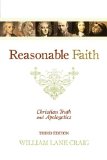In my last post, I showed that in Revelation, holding tightly to the “word of God” and the “testimony of Jesus” (or similar phrases) will possibly lead someone to death. This was a reality for John and his readers, one they were encouraged to face with perseverance (see 13:10).
It would be wrong, however, to think of this message as lacking in hope, although it would certainly be hard to stomach. So I want to look at the message of hope given in Revelation, lest anyone think Revelation is all bad news. But let’s heap the grim realities a little higher, first.
Below is a chart showing the connection between faithful testimony/witness and the prospect of facing death because of it. It’s important to know that testimony, witness and their related words come from the same Greek root. So whereas we might not make the connection in English (or if we do, it’s purely thematic), there is a linguistic tie-in for these verses. I’ve underlined the portion about the testimony and italicized the death/persecution references.
|
Following Jesus, the faithful witness, unto death |
| “Jesus Christ, who is the faithful witness, the firstborn from the dead” (1:5; cf. 3:14) |
| “Antipas, my faithful witness, who was put to death in your city” (2:13) |
| “the souls of those who had been slain because of the word of God and the testimony they had maintained” (6:9) |
| “when they (2 witnesses) have finished their testimony, the beast… will attack them… and kill them” (11:7) |
| “they triumphed…by the word of their testimony; they did not love their lives so much as to shrink from death” (12:11) |
| “the dragon…went off to make war against the rest of her offspring- those who keep God’s commands and hold fast their testimony about Jesus” (12:17) |
| “the woman was drunk with the blood of God’s people, the blood of those who bore testimony to Jesus.” (17:6) |
| “I saw the souls of those who had been beheaded because of their testimony about Jesus and because of the word of God” (20:4) |
A couple things to notice. One, Jesus is the faithful witness par excellence, who was killed for not turning his back on the truth. And while Antipas is the only other person referred to as a “faithful witness,” the theme is seen clearly in these other references, where people are killed because they will not recant their witness. You can’t get more faithful than being marched to death for what you believe and proclaim.
So, to repeat the point: if you remain faithful to your testimony about Jesus, there is a decent chance you will be killed for it.
But there is a message of hope in Revelation, and it shows up in places other than the final chapters. Notice that Jesus is called the “firstborn from the dead.” That is, he is no longer dead. Jesus wasn’t just the faithful witness who paid the ultimate price for his faithfulness; he is the faithful witness who won the ultimate victory. His resurrection guarantees that death does not have the final say over his life.
Nor does death have the final say over the lives of Jesus’ followers. That is the message of hope. Those who follow Jesus will participate in his victory over death on the last day. All of the persecuted groups in Revelation (the souls under the altar; the 2 witnesses; the 144,000; etc.) await the day of their resurrection and the New Jerusalem.
Part of the goal of Revelation is to encourage its readers to remain faithful witnesses until the end of one’s life. Of course, for John’s original readers and many other believers around the world being a faithful witness might cause that end to come sooner than it otherwise would. But just as death is guaranteed (by one means or another), so is resurrection promised to those who belong to Christ. Yes, the war waged by the dragon and the beast are real and terrible. But it is temporary. Resurrection- life in Christ- is eternal. While Revelation presents a grim picture of the world, underlying the entire message is the hope of Jesus’ faithful witnesses experi










